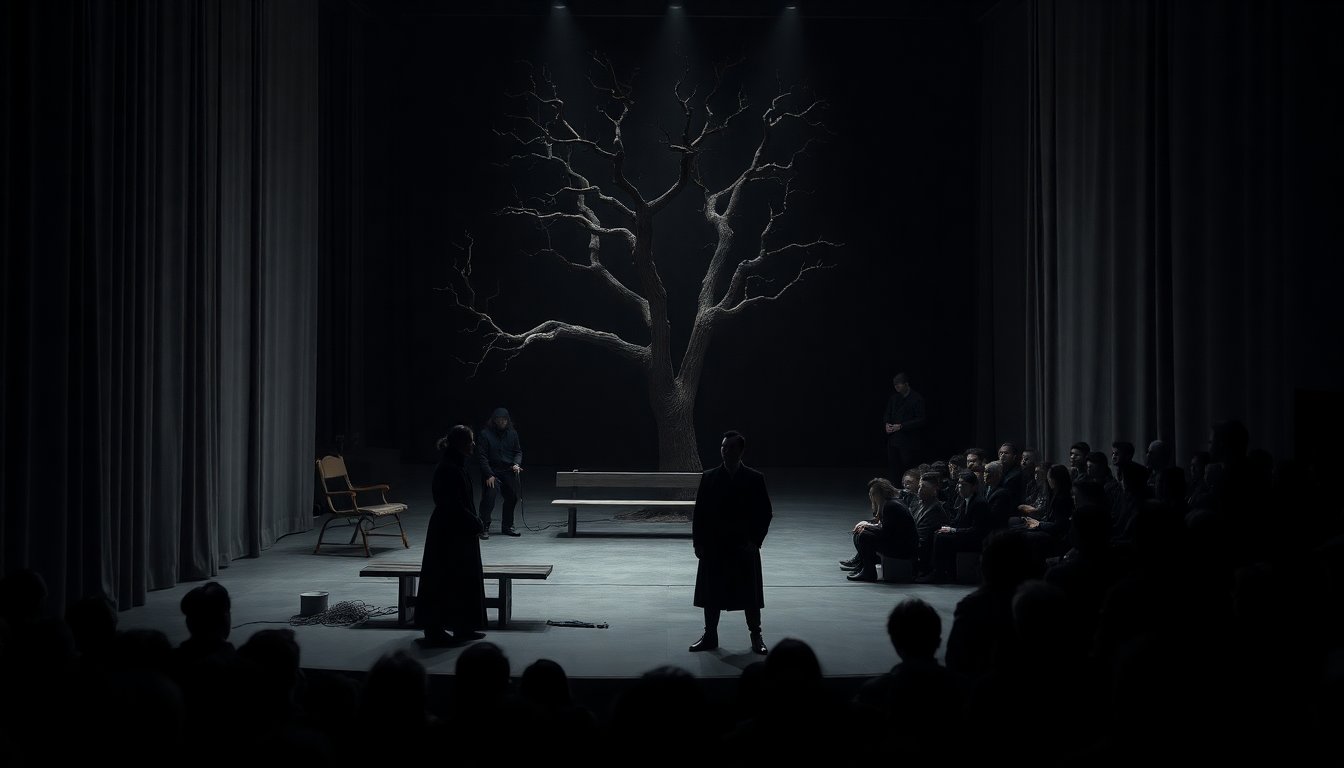Table of Contents
The recent production of Waiting for Godot, featuring renowned actors Keanu Reeves and Alex Winter, aims to revitalize Samuel Beckett’s iconic play. However, this interpretation appears to prioritize style over substance, resulting in a performance that, while visually striking, ultimately feels lacking. As audiences gathered to witness this modern adaptation, expectations were elevated, but many departed feeling that the essence of the original work was diminished.
Beckett’s masterpiece, which explores themes of existential despair and the human condition, requires a nuanced approach that captures its intrinsic complexity. Unfortunately, the portrayals by Reeves and Winter do not fully engage with these themes, opting instead for a more superficial execution that leaves viewers yearning for a deeper connection with the material.
Visual flair overshadowing thematic depth
One of the most notable aspects of this adaptation is its impressive visual presentation. The set design and costumes create an enticing atmosphere. However, this aesthetic emphasis often diverts attention from the philosophical underpinnings of the play. As the characters Vladimir and Estragon wait for the elusive Godot, the rich dialogue, laden with meaning, can be overshadowed by the visual spectacle.
Artistic choices that miss the mark
Reeves and Winter bring their star power to the performance, but their interpretations may not resonate with those well-acquainted with Beckett’s work. The duo’s portrayal often resembles a surface-level exploration of the characters rather than a profound examination of their existential struggles. Their comedic timing, while effective in certain moments, sometimes undermines the gravity of the original text.
Additionally, the choice to incorporate humor into an otherwise somber narrative can be contentious. While it may entertain, it risks trivializing the play’s significant themes. The existential questions posed by Beckett warrant a seriousness that this iteration occasionally overlooks.
Audience reception and critical analysis
Responses to this adaptation have been mixed, with some praising the actors’ charisma and the production’s visual appeal. However, many critics assert that the lack of depth in character portrayal lessens the overall impact of the story. In a play that scrutinizes the futility of waiting and the quest for meaning in a seemingly indifferent universe, a deeper connection to the characters is essential.
Comparisons to other adaptations
When juxtaposed with previous adaptations of Waiting for Godot, this version is notable for its effort to modernize the presentation. However, classic renditions typically maintain a more profound engagement with the text, enabling a richer exploration of its themes. The subtlety and nuance of earlier performances present a stark contrast to the more flamboyant approach taken by Reeves and Winter.
Ultimately, the heart of Beckett’s work lies in its ability to provoke thought and reflection. By not fully embracing this aspect, the current adaptation risks alienating audiences seeking a deeper understanding of the play’s existential inquiries. The essence of the original text demands an authenticity that is occasionally sacrificed for a more visually appealing performance.
A missed opportunity
While the production featuring Keanu Reeves and Alex Winter of Waiting for Godot may attract attention for its star cast and impressive visuals, it ultimately falls short of delivering the depth that Beckett’s work richly deserves. A classic that invites contemplation and discussion, Beckett’s play necessitates an interpretation that resonates with its existential themes. This adaptation, while stylish, leaves much to be desired, rendering it an engaging yet ultimately unsatisfying experience for those seeking a profound connection to the text.


